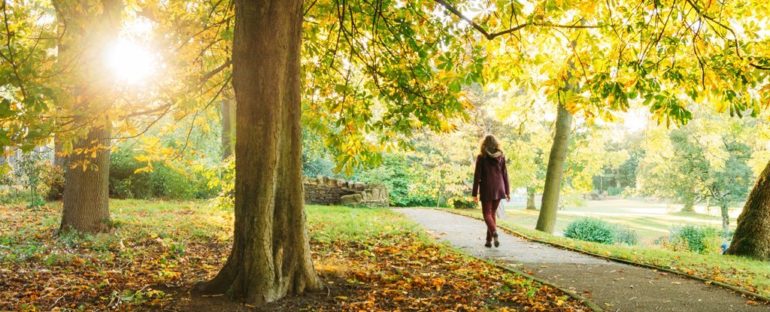Spending regular time in nature appears to come with strong psychological benefits. As more compelling evidence rolls in, doctors are increasingly prescribing time outside among greenery or near water to give our mental health a boost.
While those recommendations may help some people, new research suggests there’s a fine line between encouragement and pressure, and a formal prescription might sour the experience.
Using data from 18,838 participants in 18 countries collected for the BlueHealth International Survey in 2017, researchers found outdoor time was linked to a number of emotional benefits, but only when the choice felt like a person’s own.
The findings are consistent with self-determination theory (SDT), which is the idea that when someone feels pressure to engage in certain activities, it can undermine their intrinsic motivation to do something.
“Thus, feeling pressured to visit nature by friends/family, or more formally by a ‘green prescription’ from a medical professional, may be inadvertently detrimental,” the authors write.
“In the framework of SDT, there may be a shift from visiting nature because it is intrinsically enjoyable and fun, to visiting because of an internalised desire to meet the expectations of others.”
This isn’t to say doctors should start using reverse psychology and advise people not to go outside, but there might be a better way to give this guidance without adding external pressure.
Because if people feel like they are failing to live up to another’s expectations, it could turn the medicine into a chore.
In the BlueHealth International Survey, this appeared to be the case. The more someone felt pressured to go outside, the more likely they were to leave the house. But on the flip side, their visit outdoors was linked to less pleasure and greater anxiety, especially for those with common mental health disorders like anxiety or depression.
It’s still not clear what’s driving these results, but the study’s authors think it might have to do with less intrinsic motivation – time spent in nature for nature’s sake. It could also be that less motivated people, who experience fewer benefits from going outdoors, tend to go out just to please others.
“We need more information on this delicate balance between the intrinsic motivation and sometimes necessary encouragement from outside, as well as how nature visits could be integrated to mental health treatment,” says psychologist Ann Ojala from the Natural Resources Institute of Finland.
Because there really do appear to be benefits; we just need to figure out how to reap the best rewards.
In the survey, participants were generally self-motivated to spend time in nature, and while this was lower among those with anxiety and depression, researchers were quite surprised to find most people in this group visited nature at least once a week, the same amount as others.
This weekly allotted time made volunteers feel calm and helped relieve some of their more stressful and ruminative thoughts – with only slightly less positive self-reports among those with poorer mental health.
“We had no idea just how much people with depression and anxiety were already using natural settings to help alleviate symptoms and manage their conditions,” says Mathew White from the University of Exeter and the University of Vienna.
“Our results provide even greater clarity about the value of these places to communities around the world, but also remind us that nature is no silver bullet and needs to be carefully integrated with existing treatment options.”
The idea of ‘green care’ or ‘echotherapy‘ has been gaining ground in recent years, but most studies so far are small and have relied on self-selected samples.
While growing evidence suggests spending just a few hours a week in nature is good for your health and wellbeing, potentially improving short term memory, lessening fatigue, improving your focus, and lowering your blood pressure, it’s unclear how best to harness these benefits in a practical way.
There are still a lot of questions that remain to be answered. If we do prescribe time in nature for mental health disorders, how do we phrase the advice? How much time do we prescribe? Who will benefit the most? And where do we suggest people go?
The current findings are unique in that they give us a broad international overview of outdoor leisure time, but psychologists say they are by no means definitive and are just meant as a “first exploration”.
Clear clinical data will be an important step for future research.
“These findings are consistent with wider research that suggests that urban natural environments provide spaces for people to relax and recover from stress,” says cognitive psychologist and the study’s lead author Michelle Tester-Jones from the University of Exeter.
“However, they also demonstrate that healthcare practitioners and loved ones should be sensitive when recommending time in nature for people who have depression and anxiety. It could be helpful to encourage them to spend more time in places that people already enjoy visiting; so they feel comfortable and can make the most of the experience.”
The study was published in Scientific Reports.


